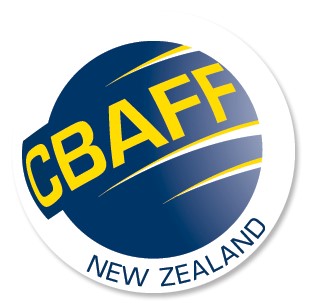Media release, 20 March 2020
Air cargo rates are rapidly soaring to ‘unaffordable’ levels as airlines cut international services, the Customs Brokers and Freight Forwarders Federation of New Zealand (CBAFF) has warned.
CBAFF chief executive Rosemarie Dawson said member companies are working round the clock to find solutions for clients requiring air cargo for urgent imports and exports.
However, with most air freight in and out of New Zealand usually carried in available ‘belly space’ in passenger planes, capacity shortages are becoming acute and many products commonly transported by air will need to travel by sea.
“Our members are at the front line, working to keep New Zealand’s exports moving and to bring essential imports in,” says Ms Dawson.
“They are facing significant challenges. Inbound capacity has already been reduced significantly with the closing of borders and inbound air freight costs are increasing dramatically.
“Capacity out of New Zealand is already reduced and that situation will become acute when the Air NZ cuts to international and Tasman capacity come into force at the end of the month.
“What we are seeing now is air cargo carriers cutting contract pricing agreements on what flights remain and going to spot rates, which is becoming cost-prohibitive. Air cargo tends to be high value commodities but that doesn’t mean they have corresponding high margins.”
With manufacturing in China coming back on line, there is also increasing demand from Chinese exporters for air cargo space to meet a backlog of New Zealand orders for items ranging from manufacturing materials to cleaning products and pharmaceuticals.
Ms Dawson said the sector was exploring all options to ensure sufficient cargo capacity on main trade routes.
“Major European freight forwarders are already chartering cargo planes but they have much larger volumes and that may not be feasible for many New Zealand companies.
“Currently only Singapore Airlines and Qantas operate dedicated air freight services into New Zealand. Government could offer incentives to encourage them to increase services in the short term, such as waiving landing fees. However, we would be competing against huge international demand.
“Air New Zealand could potentially fly passenger planes with just cargo. United and American Airlines have just announced they will be using standard passenger planes to fly cargo-only flights to Europe over the next few days, to help clear backlogs. Flying without passengers would add major costs however, and extensive Government support would be needed to subsidise that.
“Our members are working very hard on behalf of their clients, updating them constantly on flight schedules, cancellations and any opportunities for air cargo. However, the reality for the duration of this crisis, is that many importers and exporters will need to factor in extra time to enable their products, where feasible, to be transported by sea.
“Sea freight is largely operating as normal, albeit with some delays. The 14-day quarantine period for cargo ships prior to docking in Australia means ships are taking a bit longer to reach New Zealand.
“We encourage importers and exporters to factor sea shipping times into their planning and work with their freight forwarders to keep our exports flowing as efficiently as possible and to avert shortages or sky-rocketing costs for consumers.”

RSS Facebook Email Linkedin